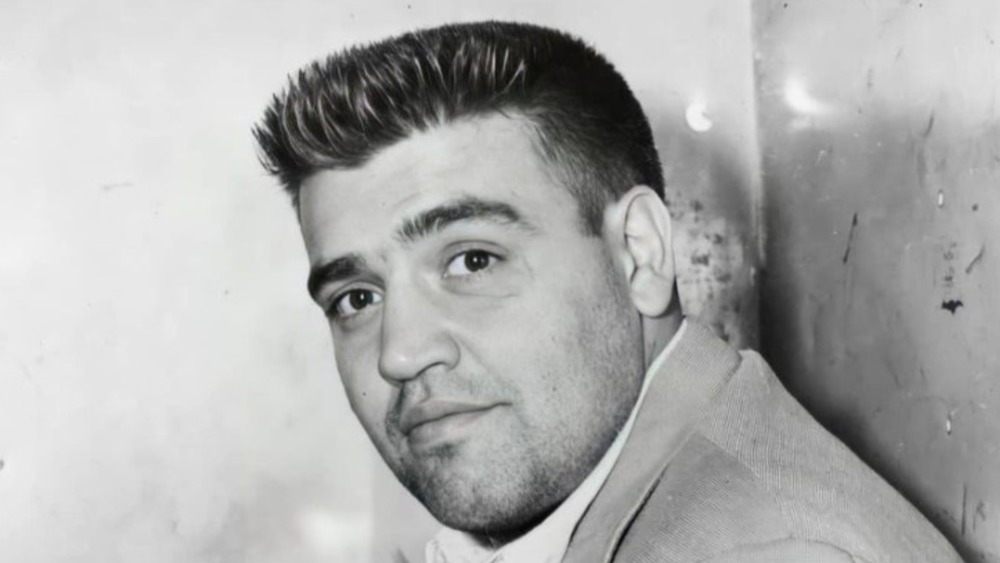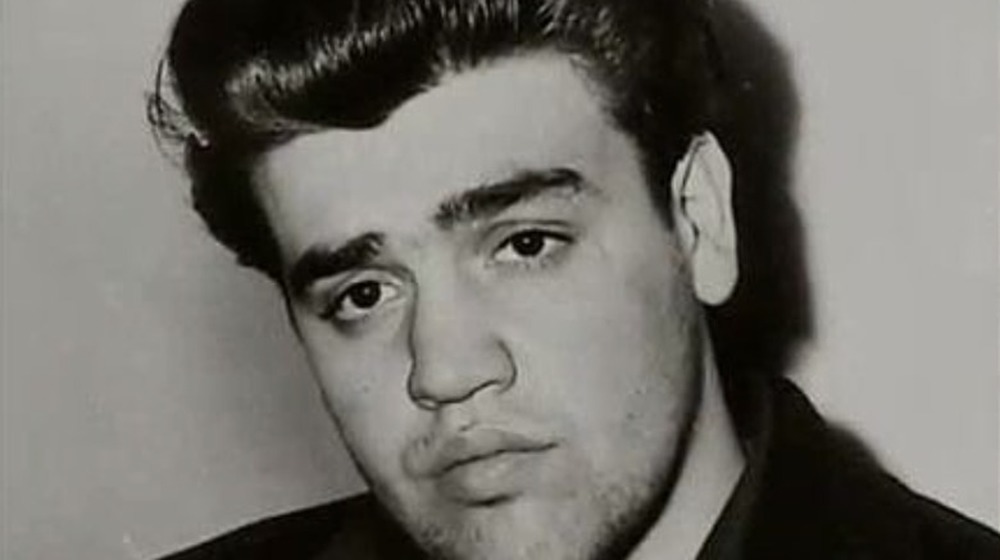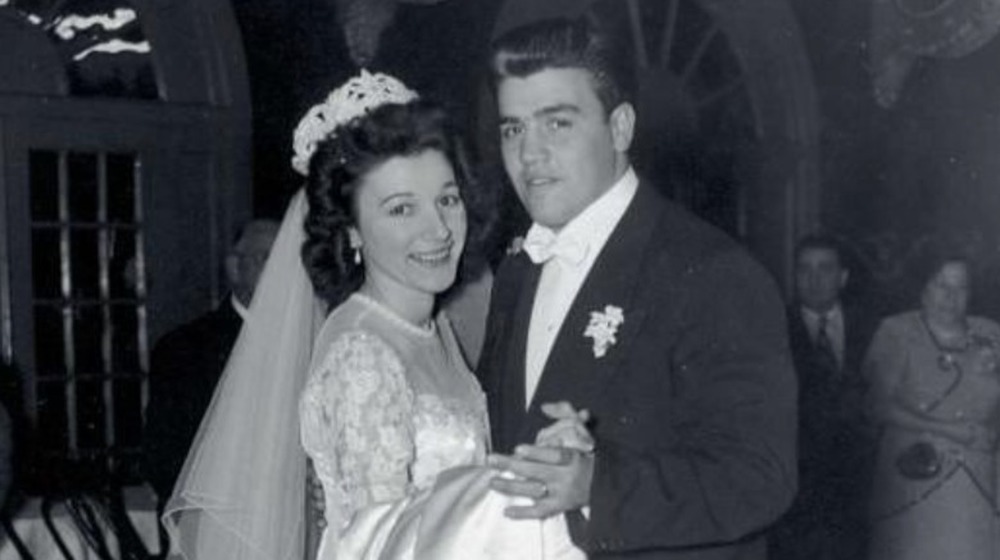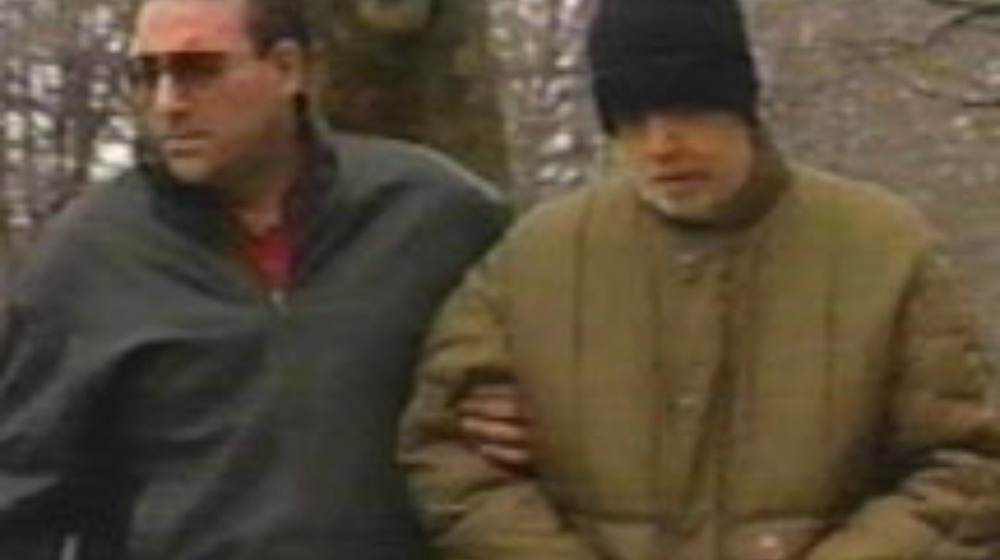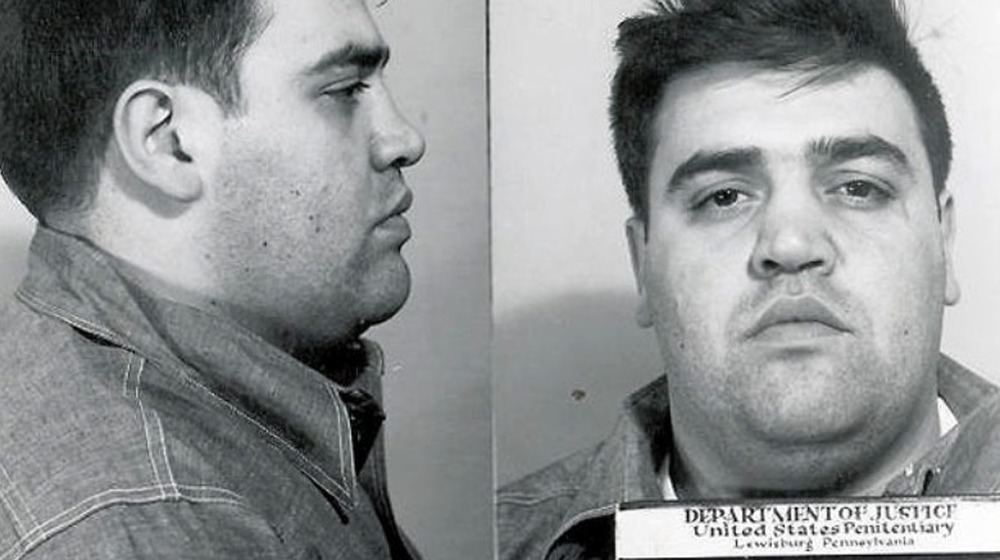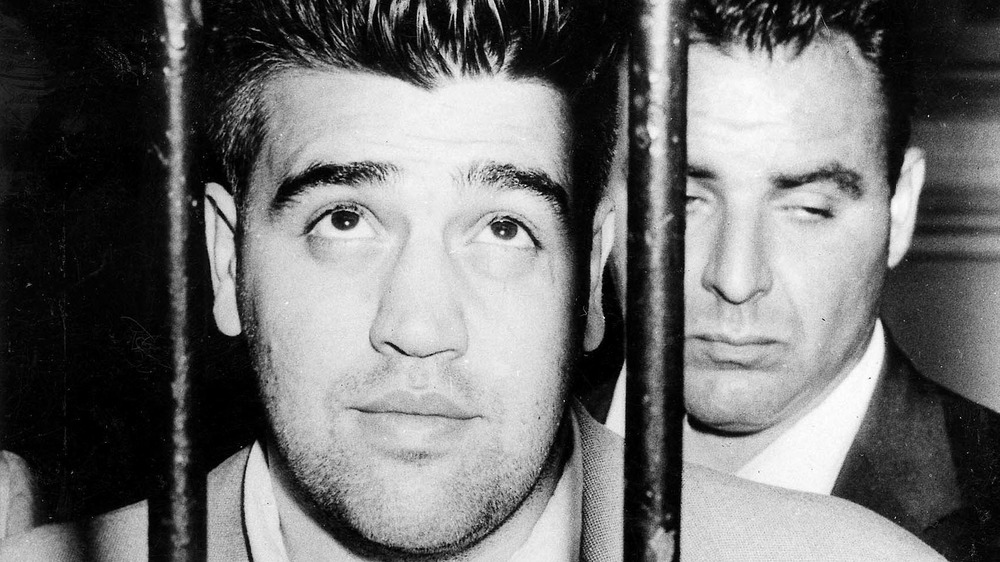Details We Know About Mobster Vincent Gigante
Vincent "Chin" Gigante was the head of the Genovese organized-crime family in the 1980s through the mid-'90s, known for strange behavior akin to mental illness that earned him a second nickname, the "Oddfather."
Though the New York Times reported he finally died at the age of 77 while serving a federal prison sentence for racketeering, Gigante managed to serve a relatively minuscule amount of prison time for all the things he was accused of, which include your standard mafia clichés like drug trafficking, loansharking, attempted murder, conspiracies, extortion, and the like.
But Gigante wasn't just another mob stereotype. He was willing to go all out in his effort to thwart culpability as the leader of a crime family. His modus operandi was to feign mental illness publicly by doing things like walking around the Greenwich Village streets he called home in pajamas and a bathrobe, muttering to himself in what some believed was a grand scheme, while those on team Gigante/Genovese insisted his behavior was proof there was no way "Chin" could be running a multi-million dollar crime organization. Vice reported he would talk to parking meters or openly urinate in the street — very un-mob-boss-like behavior.
Yet, John S. Pritchard 3rd, a former F.B.I. supervisor who led a squad that investigated the Genovese family in the 1980s, told the New York Times, "He was probably the most clever organized-crime figure I have ever seen."
Vincent 'The Chin' Gigante got his nickname from his mom
Vincent Gigante was born in New York in 1928, one of five boys whose parents immigrated from Naples, Italy in 1921, according to the Village Voice. His father was a watchmaker and his mother worked as a seamstress, but organized crime permeated the Manhattan neighborhood where his family lived.
Gigante got his start in organized crime as a teen protege to Vito Genovese, a leader of the Genovese crime family from the 1930s through the 1960s, per the New York Times. He mostly worked as an enforcer and chauffeur in the early days.
It was also during his younger years that he got his first nickname. While some stories say that Gigante got his nickname, "Chin," during his early years when he was a boxer because he had a "glass jaw" — meaning, a vulnerable place for his opponent to strike – National Crime Syndicate and What New York report that the name was a derivative of his given name, which would be spelled in Italian as Vincenzo, pronounced with a "ch" sound where the letter C is, and his mom shortened it, as moms do, to Cinzino which would sound like "Ch-inzino" or even shorter, "Chin."
As Vincent Gigante's criminal success grew, so did his family
With arrests dating back to his teens, Vincent Gigante managed to dodge convictions or only serve short stints in prison all the while moving up the crime family ladder. According to National Crime Syndicate, in 1957 he made his big move when he tried to shoot and kill mob boss Frank Costello, but only grazed Costello's head. Costello, being a principled gangster, refused to squeal, and Gigante got more street cred.
Gigante ended up serving five years in prison after a 1959 narcotics conspiracy charge stuck, the New York Times reported. Chin's star kept rising throughout the 1970s as he became deeply involved in "labor racketeering, loansharking, extortion and bookmaking," per National Crime Syndicate. In the 1980s Gigante was named head of the Genovese family when then-boss Philip Lombardo retired while serving a prison sentence.
In the midst of all this, Gigante also had a wife, a mistress and eight children between them. Gigante married Olympia Grippa in 1950 when he was 22 years old. The couple had five children together, according to My Heritage. Gigante liked being married to a woman named Olympia so much that he took a mistress by the same name who would become a lifelong companion, and had three children with that Olympia (Esposito), per the New York Times.
Vincent Gigante's priest brother denied the mafia was even a thing
With plenty of love to go around, Vincent Gigante included some of his family in his business affairs. According to a 1989 article by the Village Voice, Gigante's youngest brother, a prominent Bronx priest named Louis Gigante, was hailed for spearheading a housing project which built or renovated thousands of low-income homes.
The problem, though, according to a Village Voice investigation, was "the priest and his publicly financed developments have been a $50 million opportunity for the Mafia. The homes that Gigante's parishioners live in — senior citizen projects, one- and two-family houses, large and small apartment buildings — have been built, to a large extent, by companies owned by or affiliated with top-ranking members of the Genovese organized crime family."
For his part, Father Louis denied being involved in organized crime in any way, denied his family had any involvement in organized crime, and denied the mafia even existed, saying it was an Italian stereotype, per the Village Voice.
This was all going down in the mid- to late-1980s, when Gigante was becoming more powerful in the world of organized crime as the Genovese family boss. Simultaneously, Gigante was regularly spotted in the streets, bumbling around in his pajamas, slippers and a bathrobe (pictured above), per What New York, who also reported that from about 1970 to 1990 Gigante was admitted to 22 psychiatric hospitals. Law enforcement maintained it was all for show, and years later, Gigante admitted as much.
Vincent Gigante told the courts in 2003 he faked mental illness
Maybe Vincent Gigante was kind of a weird guy who also was really good at running a large crime family, as his second nickname, "The Oddfather," insinuates, but the courts don't take eccentricities into account when deciding if a person can be held accountable for the crimes of which they're accused. They are looking for mental competency, or lack thereof. So what if detectives once found Chin hiding in the shower, naked, under an umbrella, with the water on, per the Village Voice? Allegedly, the dude plotted crimes and carried them out — or rather, had others carry them out. The FBI was out to prove it, and in the end they would.
By 2003, however, while serving a 12-year racketeering sentence, Gigante told a judge during a plea bargain to avoid a long trial for more racketeering charges that he faked mental illness while being examined by doctors throughout the 1990s to avoid prosecution, according to the Baltimore Sun. His attorney, Benjamin Brafman, told reporters that just because he tried to trick doctors to avoid prison doesn't mean he didn't also have mental problems.
According to the Baltimore Sun, Brafman said, "Anyone who has gotten to know this individual and who is completely honest will tell you that the issue of competency is one thing, the issue of whether someone is or is not mentally ill is an entirely separate issue."
In 1997 a judge called Vincent Gigante 'a shadow of his former self'
That 2003 plea bargain got Gigante another three years added to the 12 year sentence he incurred in 1997, making him eligible for parole around 2012, but the crafty crime boss would never be free again.
Entering federal prison at age 69 and completing the initial 12-year term was tenuous at best, and with the extra three years tacked on, he wasn't likely to get out until he was 84 years old. According to National Crime Syndicate, Gigante had breathing problems and was known to faint while in prison. The New York Times reported that his cause of death was not listed by the prison, but sources said he had heart disease when he died on Dec. 19, 2005.
At his 1997 trial, Judge Jack B. Weinstein of Federal District Court in Brooklyn sentenced Gigante to less than half of the time he was eligible to receive for the racketeering crimes he was convicted of, and he was acquitted of three "gangland slayings," per the New York Times. The jury was deadlocked on whether he ordered four other murders.
The Times described Gigante as "gaunt" and staring into space as he sat in a wheelchair. Judge Weinstein said of Gigante, "He is a shadow of his former self, an old man finally brought to bay in his declining years after decades of vicious criminal tyranny."
